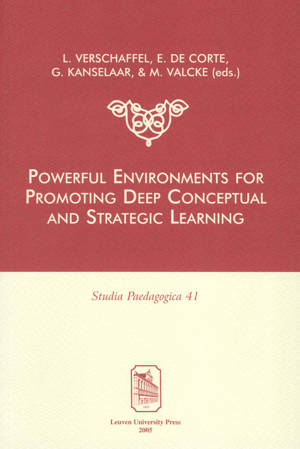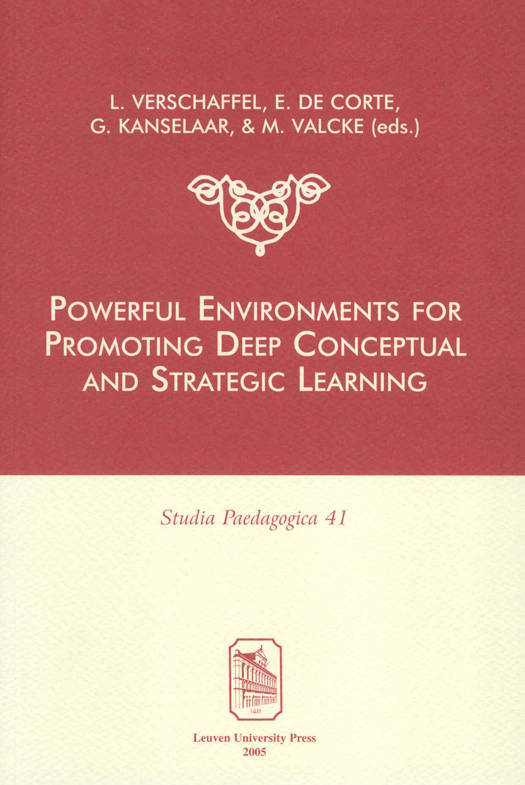
- Afhalen na 1 uur in een winkel met voorraad
- Gratis thuislevering in België vanaf € 30
- Ruim aanbod met 7 miljoen producten
- Afhalen na 1 uur in een winkel met voorraad
- Gratis thuislevering in België vanaf € 30
- Ruim aanbod met 7 miljoen producten
Zoeken
Powerful environments for promoting deep conceptual and strategic learning
M Valcke, E De Corte, Lieven Verschaffel
€ 30,00
+ 60 punten
Omschrijving
Over the past years a substantial amount of research has been undertaken relating to the development of powerful learning environments for the acquisition in students of worthwhile educational objectives focussing on conceptual understanding, higher-order cognitive and metacognitive skills, and self-regulated learning. This research has been mainly undertaken from three distinct perspectives in the study of learning and instruction, namely instructional psychology, instructional technology, and instructional design. Against this background a "research community" involving 14 European research teams has been initiated with the aim of interactively contributing to the advancement of theory and methodology relating to the design, implementation, and evaluation of powerful learning environments. This volume constitutes a collective output of this research community, focussing on the identification and analysis of major components and dimensions of powerful learning environments aimed at the promotion of deep conceptual and strategic learning in major domains of school curricula, like mathematics, physics, history, and social sciences. In Part I of the volume three chapters present general perspectives on the central theme of the third workshop. In Part II six studies are reported wherein novel learning environments for elementary and secondary mathematics education have been designed, implemented and evaluated. In Part III of the volume another set of five investigations is presented relating to the design, implementation and evaluation of powerful learning environments in other subject-matter domains and in teacher training.
Specificaties
Betrokkenen
- Auteur(s):
- Uitgeverij:
Inhoud
- Aantal bladzijden:
- 258
- Taal:
- Engels
- Reeks:
- Reeksnummer:
- nr. 41
Eigenschappen
- Productcode (EAN):
- 9789058674692
- Verschijningsdatum:
- 15/02/2008
- Uitvoering:
- Paperback
- Formaat:
- Trade paperback (VS)
- Afmetingen:
- 156 mm x 234 mm
- Gewicht:
- 367 g

Alleen bij Standaard Boekhandel
+ 60 punten op je klantenkaart van Standaard Boekhandel
Beoordelingen
We publiceren alleen reviews die voldoen aan de voorwaarden voor reviews. Bekijk onze voorwaarden voor reviews.











